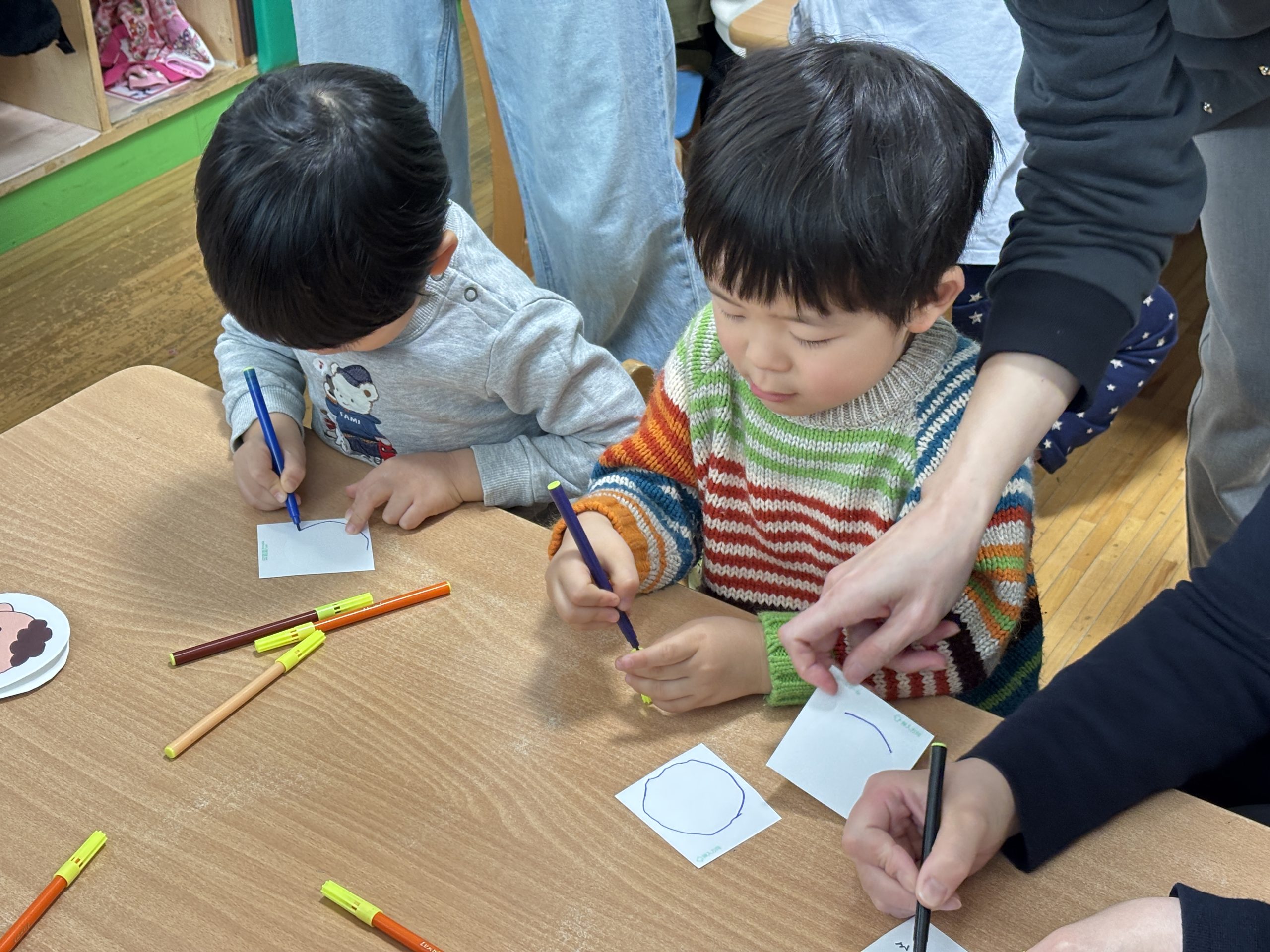A few years ago, at A-JB Waseda Campus, as a K4 unit about relationships under the transdisciplinary theme “Who We Are” was winding down, the teachers were planning a final learning celebration. It would combine the children’s interest in world cuisine with a celebration of friendship. After all, they were learning about building relationships. What better way to connect than through a party?
All students in the school would be invited to join the fun. The K4 class would plan and “cater” the event. They had everything they needed to create yummy-looking pretend dishes: glue, paint, construction paper, and scissors. Books from the library helped them learn what international foods looked like. But just as they were ready to get to work, one book, “A Friend” by Tanikawa Shuntaro, changed everything.
What the teachers thought would be a provocation about making friends at school became something much bigger. One question from the book, “How do we help children we haven't even met?”, accompanied by photos and stories of children who were sick, lonely, and hungry struck a chord with our four and five year olds. They had questions of their own: Why do they look sad? Why are they hungry? Can they go to a doctor? Do they have friends? Can we play with them? Can they eat lunch with us?
These were heavy questions, even for adults. But it was the children, not the teachers, who suggested taking action.
The party was still on, but it had transformed. The teachers worked with the children to turn it into a fundraiser. The school community came together to support UNICEF, and each donation was met with a handmade piece of art by a student. The spirit was contagious and lasting, with children in the class talking about how to make a difference for others until the day they graduated. That same spirit of meaningful action continues to live on at our school.
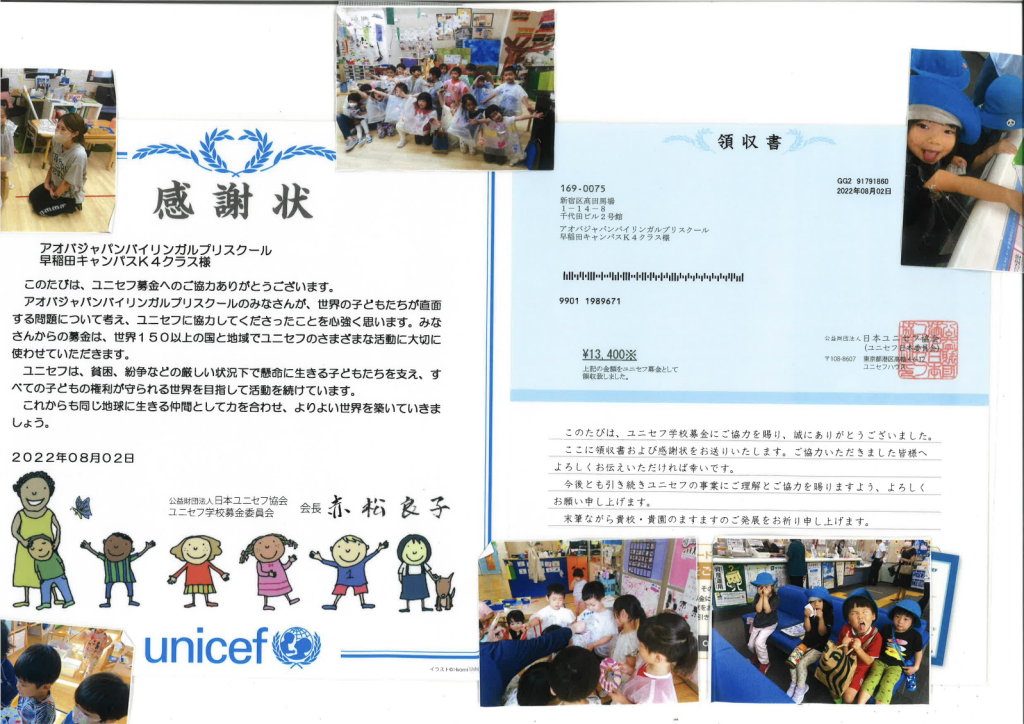
For example, one February morning this year, volunteers from Warm Hearts Coffee, a nonprofit run by Seibo Japan, visited our campus to lead mini-seminars for students and parents. Together, we learned about Malawi, a country where many children face challenges accessing education and daily meals. Through stories, photos, and discussion, students explored how coffee production can support school lunch programs and help children stay in school. Parents and children learned side by side, and students decorated stickers to personalize coffee pouches that were offered in exchange for donations.
In the days that followed, the children continued to think about what they learned. They asked questions, shared their thoughts, and created reflective posters to display in the school lobby alongside the coffee where donations were being accepted. What began as a single event where teachers modeled action became an ongoing opportunity for children to take meaningful action themselves, make connections across communities, and express their learning in thoughtful, visible ways.
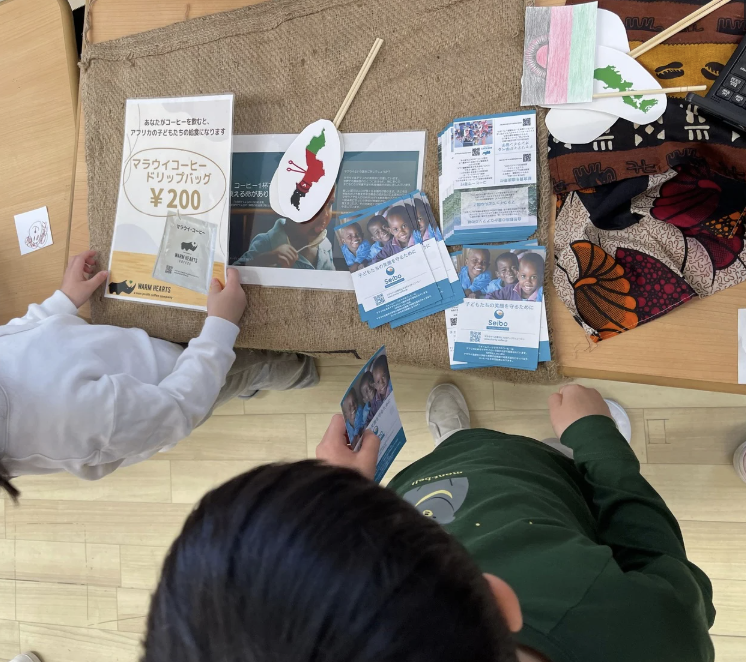
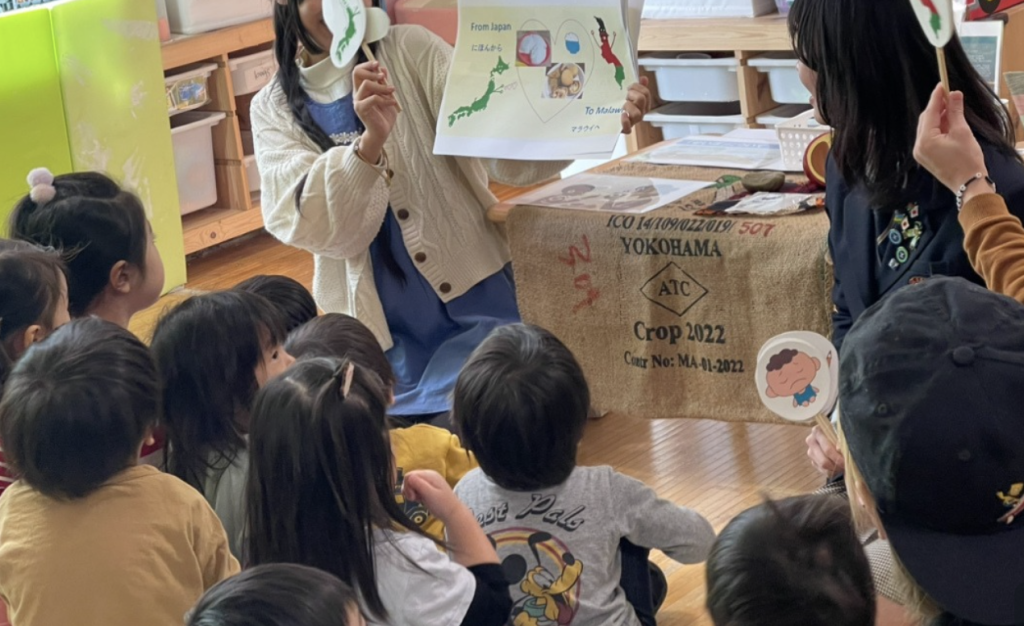
These moments remind us what’s possible when children are given the chance to respond to the world around them with empathy, creativity, and purpose. A story can spark a question. That question can spark change.
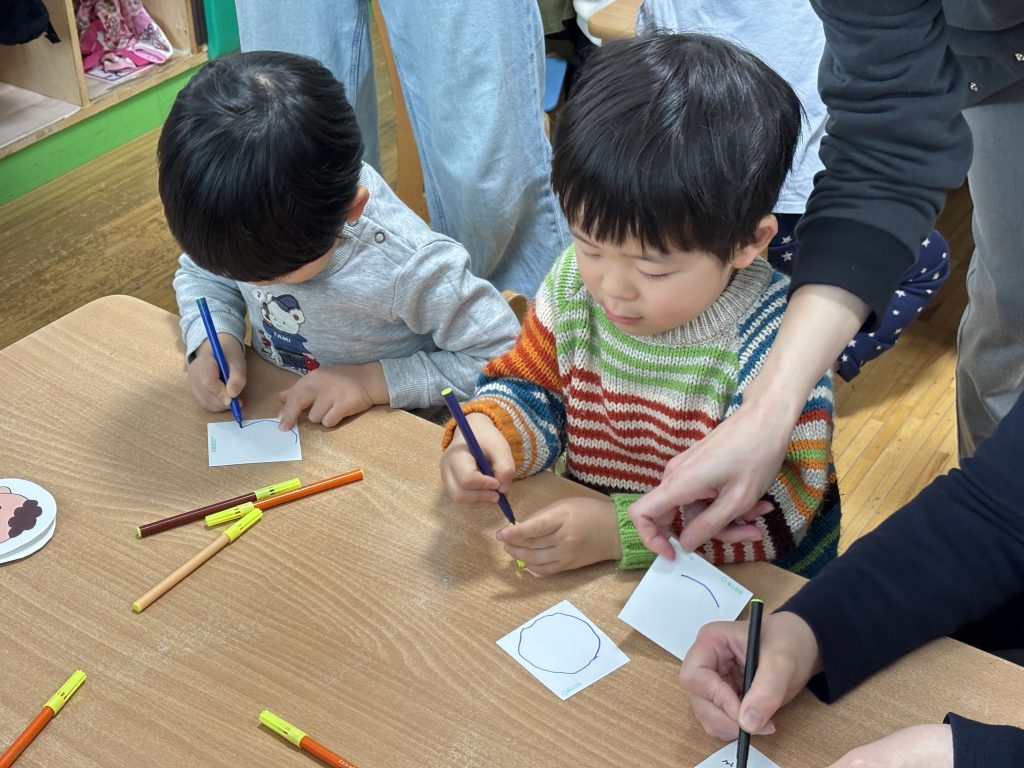
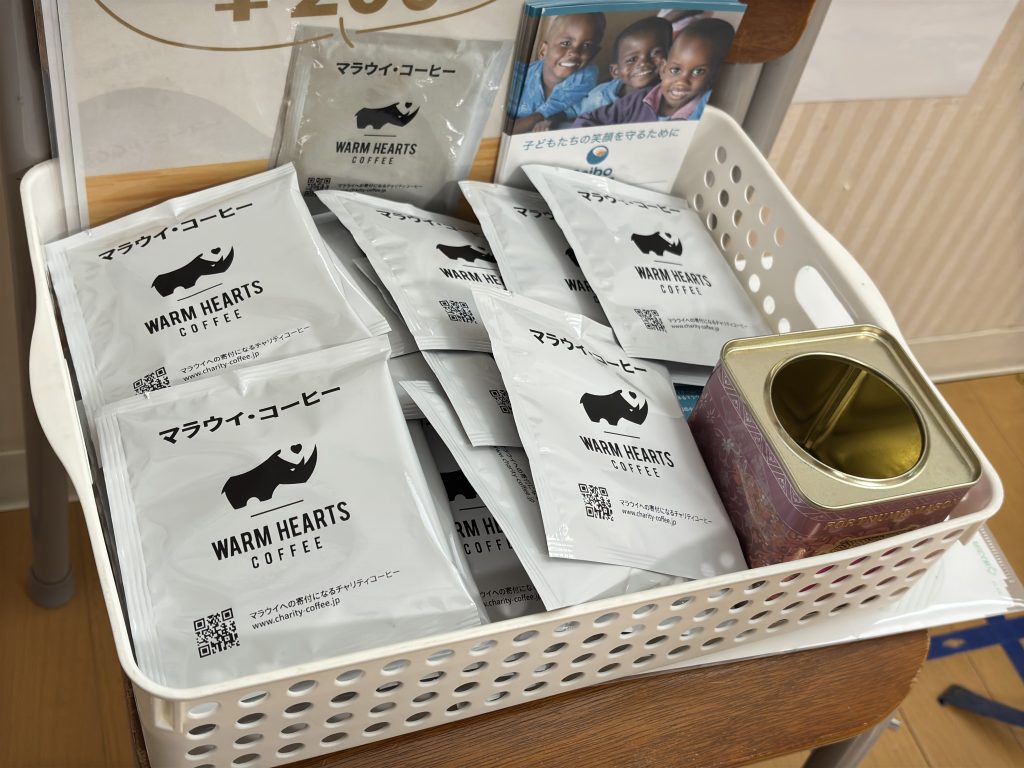
This reflects our core values and mission at Aoba. Through a holistic, transdisciplinary approach to learning and teaching, we empower even our youngest learners not only with the skills and knowledge needed for lifelong learning but also with the confidence to make a difference in their local and global communities through self-initiated action today.
Meaningful action does not happen overnight, though. It is nurtured over time with intentional opportunities in a variety of settings, even outside of school. So what can parents do at home to light that spark in their child and empower them to make a difference?
Everything can have a big impact. Here are some simple ways families can take action together:
-Take a walk in nature and talk about why taking care of the environment matters. Model responsible waste disposal or celebrate taking your trash with you. Nature centers and child-friendly hiking trails a short distance from the city offer real-life context for these conversations. Along the way, your child will also practice early science skills like observation, comparing natural elements, and recognizing patterns. These build the foundations for understanding Earth science and ecology.
-Sort recycling with your child and talk about why recycling is important. Many local wards use colorful visuals in their guidelines to support understanding of the process. It’s also a great opportunity to build early literacy skills through interpreting signs and symbols. This will support foundational math skills like sorting, measuring, and making comparisons.
-Celebrate big milestones, like haircuts or outgrowing a book or toy, by giving back. If parents and children agree, consider donating hair to organizations that support medical wig programs or passing along gently used toys and books to local community centers. Consent here is key! It enforces to children that their body and belongings are their own, and that helping others should never come at the expense of their comfort or choice. Involving them in this decision making will help your child make connections between personal growth, empathy, and responsibility while nurturing their sense of ownership and autonomy.
-Cook a meal together to share with a family member, family friend, or neighbor. You will help foster teamwork and empathy in your child while building collaboration skills such as setting a shared goal, dividing tasks, sharing responsibility, and managing space and materials effectively. As your child grows, volunteering at a food pantry or soup kitchen will further develop their sense of responsibility and community involvement.
-Volunteer to read at a local library with your child. This supports literacy not only for your child but other children in the community as well.
Rather than waiting for a child to grow up to make a difference, why not give them the chance to start now? When we do, we see that their capacity to care, to lead, and to act is already there. It is just waiting to be nurtured. Along the way, we may even rediscover that spark in ourselves, too. Then we can bond with our children and grow together, side by side, as we take small steps to change the world.

